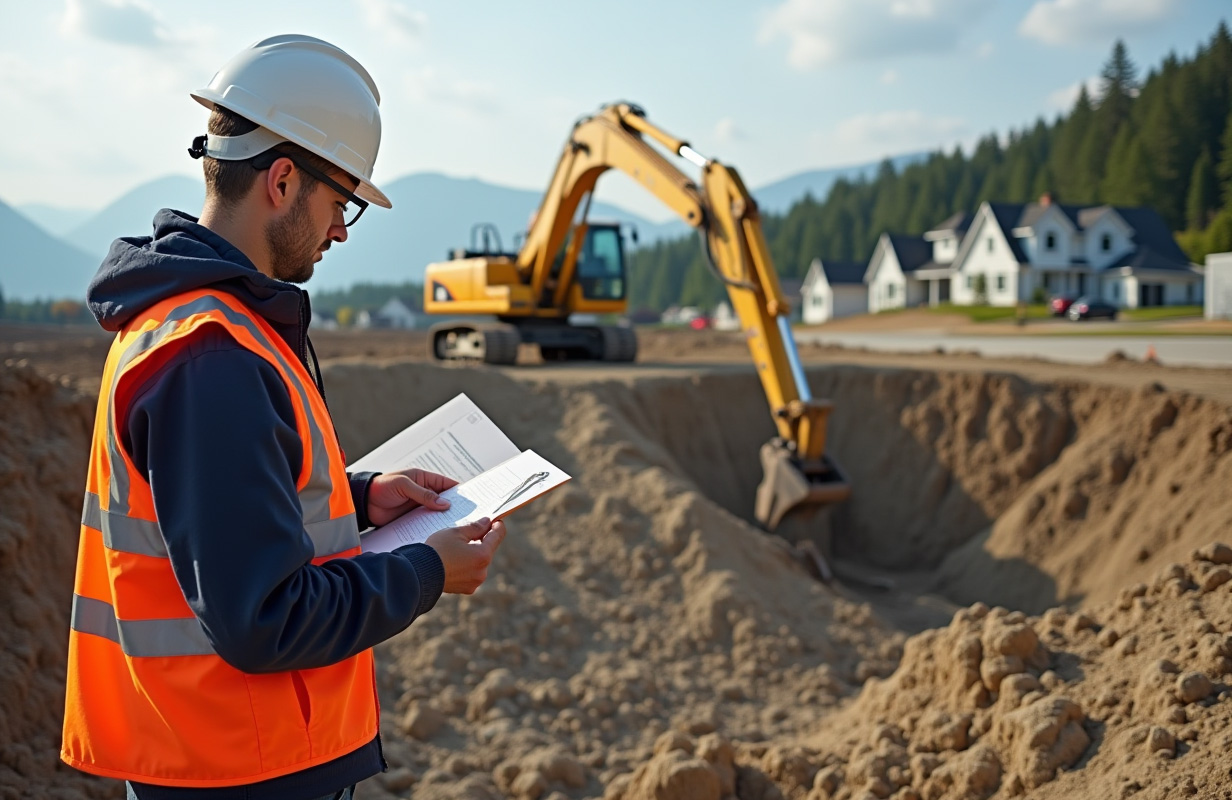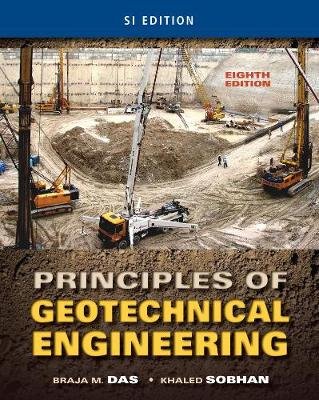Locating the most effective Geotechnical Companies in South Africa: Trick Considerations
Locating the most effective Geotechnical Companies in South Africa: Trick Considerations
Blog Article
The Value of Geotechnical Design in Attending To Ecological Obstacles and Enhancing Building And Construction Safety And Security
Geotechnical design functions as a keystone in the crossway of environmental stewardship and building and construction security, offering essential understandings right into the actions of dirt and rock under different conditions. This discipline not only addresses pushing environmental obstacles such as dirt erosion and groundwater protection but additionally improves the toughness of infrastructure versus all-natural dangers. By executing tactical website examinations and customized mitigation measures, geotechnical designers play a crucial duty in guarding both human lives and eco-friendly stability. The intricacies of these obstacles increase vital concerns about the future instructions of this area and its effects for sustainable growth.

Function of Geotechnical Engineering
Geotechnical engineering plays a vital role in the layout and building and construction of framework by resolving the actions of dirt and rock materials under various problems. This field of design is important for comprehending the interaction in between structures and the ground, which consists of establishing the load-bearing ability of dirt, evaluating stability, and predicting possible negotiation or failing.
Geotechnical engineers are responsible for conducting website investigations, which entail sampling and screening dirt and rock to gather information on their physical and chemical homes. This details is essential for developing foundations, maintaining wall surfaces, and various other earth-retaining structures that ensure safety and security and durability. Furthermore, geotechnical design notifies the selection of suitable building and construction methods and products, thereby reducing threats connected with soil habits.
Moreover, the combination of geotechnical engineering concepts right into metropolitan preparation and environmental monitoring is critical for resolving difficulties such as ground contamination and groundwater monitoring. By understanding geotechnical aspects, designers can develop lasting services that boost the resilience of facilities versus all-natural risks, while likewise promoting environmental stewardship. Inevitably, the duty of geotechnical engineering is vital for achieving safe, sturdy, and environmentally mindful building and construction techniques.
Soil Erosion Mitigation
Dirt disintegration poses a considerable danger to both ecological security and infrastructure stability, influencing approximately 24 billion lots of abundant dirt shed each year worldwide. This phenomenon is intensified by aspects such as logging, urbanization, and inadequate farming techniques. Geotechnical design plays a pivotal function in creating reliable dirt disintegration reduction approaches that guard both the environment and building jobs.
One method involves the implementation of erosion control methods such as plants growing, which supports soil through root systems. In addition, the building and construction of retaining walls and balconies can efficiently decrease surface runoff and protect vulnerable locations from disintegration. Appropriate drain design is also essential; it reduces water accumulation and routes excess overflow away from critical structures.
Additionally, geotechnical designers use soil stabilization techniques, such as the application of geotextiles and biodegradable floor coverings, to enhance soil cohesion and stop deterioration - geotechnical specialist. Regular surveillance and evaluation of erosion-prone sites make it possible for timely treatments, making sure long-lasting sustainability. By integrating these approaches, geotechnical engineering not just alleviates the impacts of dirt disintegration yet additionally adds to the resilience of framework against ecological obstacles, eventually fostering a much safer and more lasting built atmosphere
Groundwater Protection Approaches
Groundwater works as a vital resource for alcohol consumption water, agriculture, and industrial procedures, making its security essential for ecological sustainability and public wellness. Effective groundwater security strategies are vital in alleviating contamination risks and ensuring the durability of this source.

Normal tracking of groundwater quality is additionally necessary, allowing early discovery of contamination sources and facilitating prompt remediation initiatives. Employing innovative modern technologies, such as geophysical surveys and remote picking up, aids in identifying prospective threats to groundwater gets.
Moreover, public education and learning and stakeholder interaction are essential, cultivating neighborhood assistance for groundwater security campaigns. all about geotechnical engineering. By integrating governing measures, technological advancements, and area involvement, we can develop an extensive structure that safeguards groundwater sources while promoting sustainable growth and construction techniques
Landslide Risk Administration
Landslides posture significant dangers to both human safety and security and infrastructure, making efficient threat management techniques crucial. Geotechnical engineering plays a vital duty in identifying, evaluating, and mitigating landslide threats. An extensive understanding of slope security, dirt technicians, and hydrology is vital for developing effective threat administration strategies.
The initial step in landslide risk management involves extensive site investigations, which include geological mapping and dirt testing. These investigations help engineers review the potential for landslides by identifying important aspects such as incline angles, dirt structure, and water material. Making use of innovative modern technologies such as remote picking up and geophysical studies can boost the precision of these evaluations.
When threats are identified, ideal reduction actions can be applied. These might include engineering why not try here services such as keeping walls, drainage systems, and incline stablizing methods. Additionally, keeping track of systems ought to be established to detect signs of ground activity and modifications in water levels, allowing for aggressive interventions.

Enhancing Building And Construction Security
Building sites commonly offer a myriad of threats that can threaten employee security and job stability. Geotechnical design plays a crucial role in enhancing construction safety by providing essential insights right into subsurface conditions. Through comprehensive dirt and rock evaluation, geotechnical designers can determine potential risks, such as dirt instability, groundwater problems, and seismic vulnerabilities, which may compromise the safety of building and construction tasks.
Carrying out geotechnical options, such as proper foundation layout and making use of keeping structures, minimizes these dangers considerably. These solutions not just make certain the security of the structures being constructed yet likewise create a more secure working atmosphere for construction personnel. In addition, extensive monitoring and evaluation of site problems throughout the construction procedure are important. Using advanced modern technologies like ground-penetrating radar and inclinometer systems enables real-time information collection, permitting prompt interventions when threats are discovered.
Furthermore, promoting a society of safety with training and adherence to developed safety and security methods further enhances construction site security. By integrating geotechnical knowledge right into the preparation and implementation phases, building jobs can accomplish greater security requirements, inevitably shielding employees and making certain effective task conclusion.
Verdict
In conclusion, geotechnical design serves as a critical go right here technique in advertising and tackling ecological challenges building and construction security. Via effective dirt erosion reduction, groundwater protection methods, and landslide risk monitoring, geotechnical engineers contribute to the growth of durable framework.
Geotechnical engineering offers as a foundation in the junction of environmental stewardship and building and construction safety, supplying vital understandings right into the behavior of dirt and rock under various conditions. Geotechnical design educates the selection of proper building and construction techniques and products, thereby lessening threats associated with soil habits.
Geotechnical design plays a pivotal function in establishing effective soil erosion reduction approaches that safeguard both the environment and building tasks.
In addition, geotechnical designers employ soil stabilization methods, such as the application of geotextiles and eco-friendly floor Going Here coverings, to boost soil cohesion and stop deterioration. Via comprehensive soil and rock analysis, geotechnical engineers can identify potential risks, such as soil instability, groundwater problems, and seismic susceptabilities, which might endanger the safety and security of building and construction tasks.
Report this page